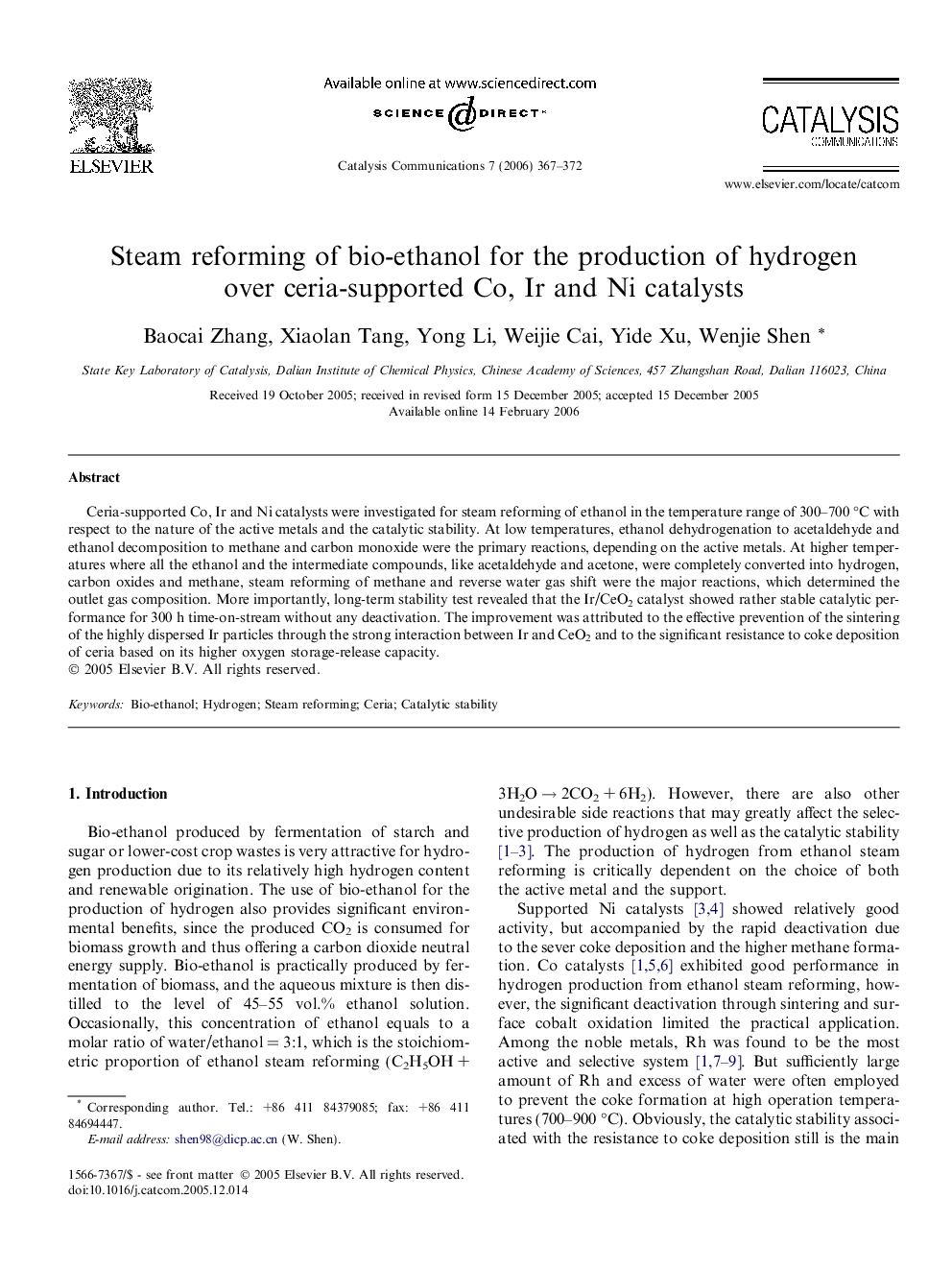| Article ID | Journal | Published Year | Pages | File Type |
|---|---|---|---|---|
| 53000 | Catalysis Communications | 2006 | 6 Pages |
Ceria-supported Co, Ir and Ni catalysts were investigated for steam reforming of ethanol in the temperature range of 300–700 °C with respect to the nature of the active metals and the catalytic stability. At low temperatures, ethanol dehydrogenation to acetaldehyde and ethanol decomposition to methane and carbon monoxide were the primary reactions, depending on the active metals. At higher temperatures where all the ethanol and the intermediate compounds, like acetaldehyde and acetone, were completely converted into hydrogen, carbon oxides and methane, steam reforming of methane and reverse water gas shift were the major reactions, which determined the outlet gas composition. More importantly, long-term stability test revealed that the Ir/CeO2 catalyst showed rather stable catalytic performance for 300 h time-on-stream without any deactivation. The improvement was attributed to the effective prevention of the sintering of the highly dispersed Ir particles through the strong interaction between Ir and CeO2 and to the significant resistance to coke deposition of ceria based on its higher oxygen storage-release capacity.
